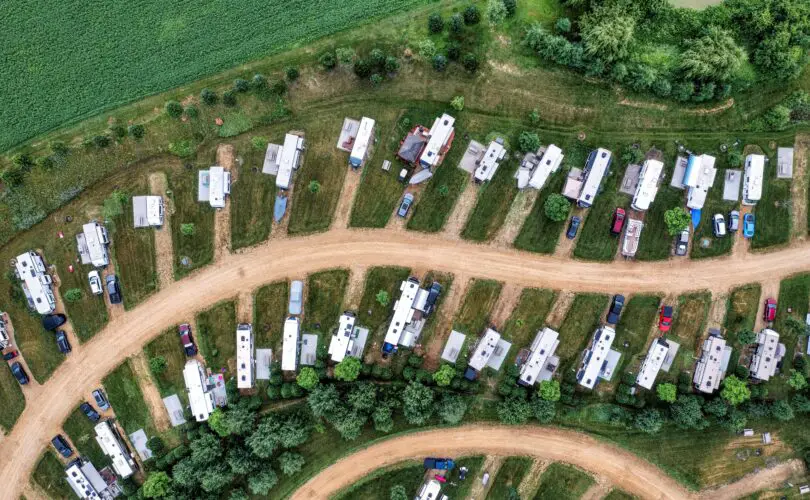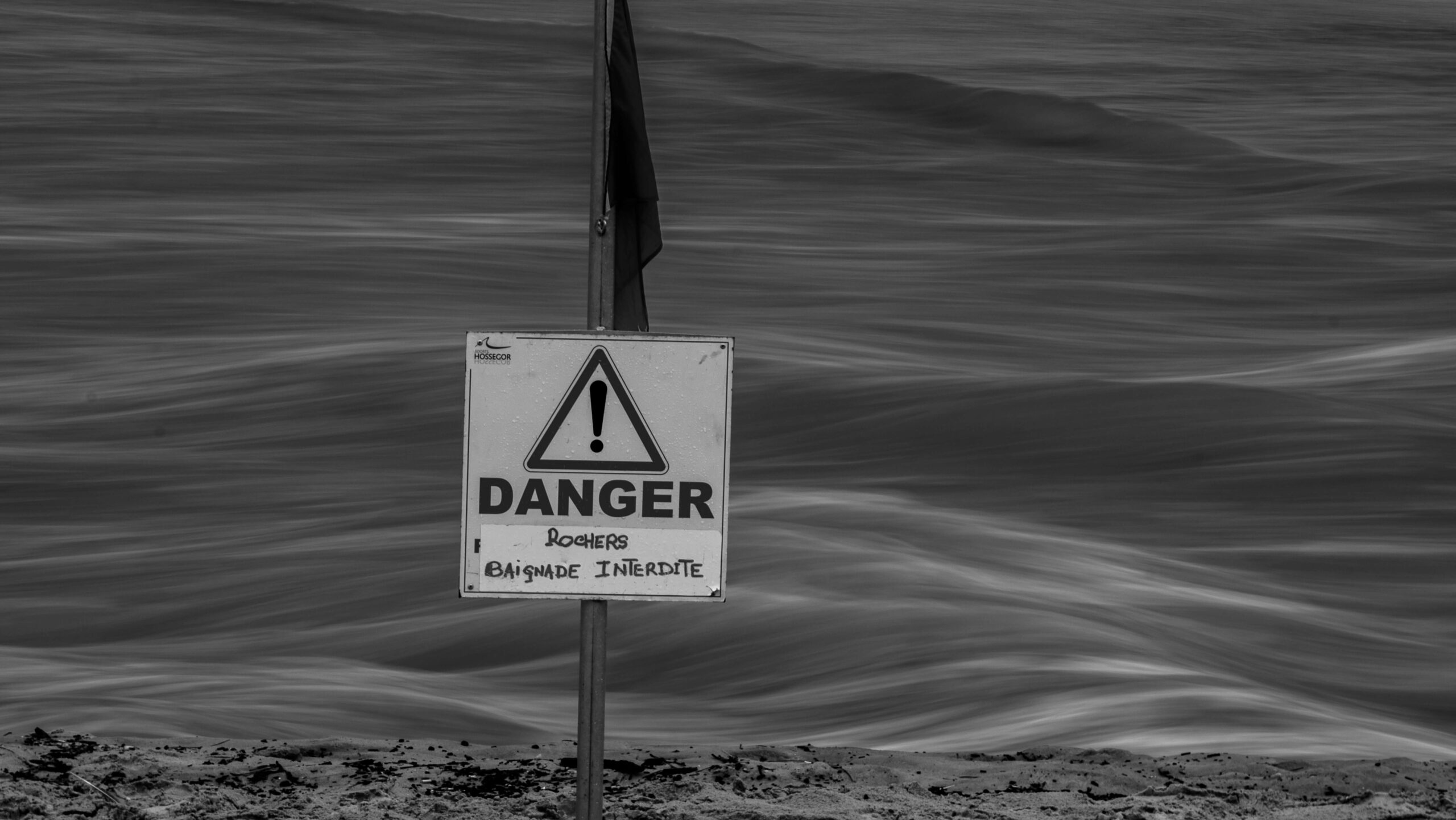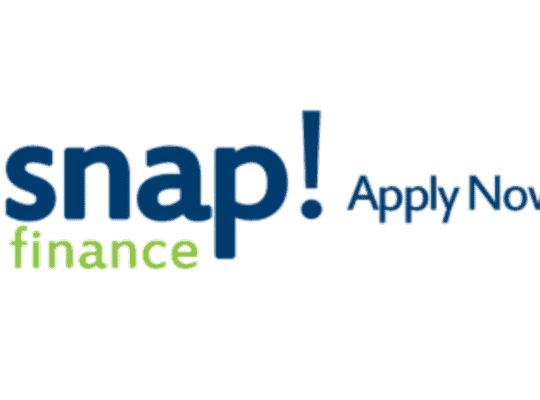For many aspiring entrepreneurs, the campground industry holds a unique appeal. It is undeniable that owning a campground is a fulfilling venture. This is given the love of the outdoors, a passion for hospitality, or the desire for a lifestyle change. The prospect of purchasing a campground is daunting, especially if you are short of funds. This is the point you find yourself wondering how to buy a campground with no money.
Ways How to Buy a Campground with No Money
There are multiple ways you can buy a campground without money. The most common ones are:
1. Seller Financing
This strategy is more of a dynamic arrangement where the buyer and seller directly collaborate to facilitate the purchase of a campground property. The key difference between seller financing and traditional transactions is that the seller acts as the financier.
A major benefit of the approach is the flexibility it offers in structuring the agreement terms. Both the buyer and seller have the freedom to negotiate various aspects of the deal. This includes the purchase price, interest rates, and repayment schedule. For a buyer, the flexibility opens up opportunities to secure favorable terms like low or no down payment. This is something that greatly reduces the initial financial burden of acquiring a campground.
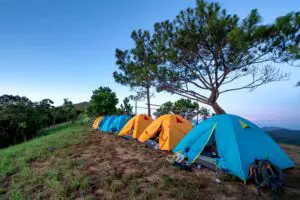
By spreading out payments over time, seller financing would enable you as the buyer to gradually assume ownership of the property. The best part is that this happens while generating revenue from the operations of the campground.
Another advantage of the strategy is that it streamlines the purchasing process. This is because it eliminates many hurdles related to traditional loans. These are things like credit checks, appraisals, and extensive paperwork. So, the approach expedites the transaction and fosters a more collaborative and transparent relationship between the seller and buyer.
2. Partnering with Investors
Getting into partnerships with investors is another strategic approach to buying a campground with no money.
Such a partnership would allow the pooling of resources, expertise, and financial backing, tools that facilitate the acquisition process. Some of the key advantages of the approach are:
- Access to Capital – Investors bring financial resources to the table, eliminating the need for the buyer to come up with a substantial down payment or secure traditional financing from lenders.
- Shared Risk and Responsibility – Each partner shares in the responsibility of ownership, including financial obligations, operational management, and decision-making, which can alleviate the pressure on individual buyers.
- Complementary Skills and Expertise – Diversity from partnerships is leveraged to enhance the success of the venture. For example, one partner may possess expertise in hospitality management, while another may excel in marketing or property maintenance, resulting in a well-rounded team capable of addressing various aspects of campground operation.
- Networking and Connections – Valuable networks and industry connections like potential customers, suppliers, industry professionals, and other stakeholders contribute to the success of the campground business. Leveraging these networks can help generate business opportunities, attract customers, and foster growth.
- Long-Term Collaboration and Growth – Partnerships have the potential to foster long-term collaboration and growth. Building a strong partnership foundation based on trust, transparency, and shared vision can lay the groundwork for sustained success and prosperity.
3. Lease Options
Lease options are another way to secure a property with minimal upfront investment. This is while maintaining flexibility and control over future ownership.
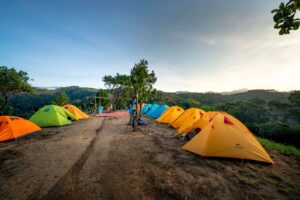
In the context of a lease option agreement, a buyer typically leases the campground from the owner over a specified period. Mostly, it ranges from one to several years. Within the timeframe, the buyer has the exclusive right to purchase the campground at a predetermined price. This provides a valuable window of opportunity to assess the property, its profitability, and feasibility prior to committing to ownership.
The flexibility lease options afford to buyers is a major benefit of the options. They require minimal upfront costs, something which makes them an attractive option. Meaning instead of tying up major funds in a down payment, buyers are able to allocate resources toward operating and improving the campground.
Get to Know if Being Famous is Dangerous
The options also allow buyers to test the waters and evaluate the viability of the campground as a long-term investment. The lease period gives buyers an opportunity to assess various factors like market demand, competition, operational expenses, and revenue potential. It is the hands-on experience that provides insights that inform the decision of proceeding with the purchase or exploring other opportunities.
As a buyer, a person is provided with a certain degree of protection against unfavorable market conditions or unforeseen circumstances. With the purchase price being predetermined at the onset of the agreement, a buyer is locked in a favorable price. Thus being shielded from price fluctuations or market volatility.
4. Creative Financing
Creative financing is another way how to buy a campground with no money. It entails thinking outside the box to secure funding.
You can accomplish this through:
Seller Carry-back Mortgages
In a seller carry-back mortgage, the seller acts as the lender, essentially financing part of the purchase price. This arrangement allows the buyer to make payments directly to the seller over time, often with more flexible terms than a traditional bank loan. Sellers may be more willing to consider this option if they’re motivated to sell quickly or if the property has been on the market for an extended period.
Assuming Existing Mortgages
Assuming an existing mortgage on the campground can be another avenue for creative financing. If the seller has an outstanding mortgage on the property, the buyer may be able to assume responsibility for the mortgage payments, effectively taking over the loan. This option can save the buyer from having to secure a new loan and may result in lower upfront costs, assuming the existing mortgage typically involves paying the seller a portion of the equity rather than the full purchase price.
Seller Equity Participation
In some cases, sellers may be open to structuring the deal in a way that allows them to retain a stake in the campground’s future success. This could involve the seller retaining partial ownership of the property or receiving a share of the profits generated from campground operations for a certain period. By allowing the seller to participate in the upside potential of the business, buyers may be able to negotiate more favorable terms or secure financing with minimal upfront costs.
Barter or Trade Deal
In rare cases, buyers may be able to negotiate a barter or trade deal with the seller, offering goods or services of equivalent value in exchange for the campground. For example, if the buyer owns another property or business that the seller finds valuable, they may agree to accept it as partial payment for the campground. While unconventional, barter or trade deals can be mutually beneficial for both parties and may provide a way to finance the purchase without requiring cash upfront.
Joint Ventures or Syndication
Pooling resources with other investors through joint ventures or syndication can be another creative financing option for acquiring a campground. By partnering with individuals or groups who have capital to invest, buyers can spread the financial burden and reduce their own upfront costs. Joint ventures and syndication arrangements can also provide access to expertise, resources, and networking opportunities that may not be available to individual buyers.
5. Crowdfunding
Crowdfunding is a powerful tool for financing multiple ventures. Tapping into crowdfunding platforms places one in a position to access a diverse pool of investors eager to support promising projects.
Crowdfunding democratizes investment opportunities. This allows people from all walks of life to participate in funding ventures they believe in.
In order to attract backers, you would need to offer compelling incentives. These incentives are what serve as rewards for the contributions of the backer. They also vary depending on the level of investment. Apart from incentivizing backers to contribute, this also fosters a sense of community and engagement among supporters.
Offering ownership stakes is a powerful incentive for larger investors. Granting backers a share of ownership makes them become vested in the success of the venture. They also stand to benefit from its profitability in the long run.
6. Government Grants and Programs
In supporting small business ventures and rural development, government programs and grants play a role. The programs are designed to stimulate economic growth, promote tourism, and enhance community infrastructure in rural areas. Tapping the resources would assist you in accessing funding or low-interest loans to kick-start the venture.

The key avenue for obtaining government support is the Small Business Administration (SBA) loans. SBA offers several loan programs that are specifically tailored to small businesses even those in the tourism and hospitality industry. A positive side of the loans is that they have favorable terms. This includes the low-interest rates and longer repayment periods.
Various federal, state, and local government agencies administer grants and incentive programs focused on spurring rural development. The programs provide grants for infrastructure improvements, marketing initiatives, or business expansion projects. By leveraging the grants to fund capital investments like upgrading facilities, enhancing amenities, or implementing eco-friendly initiatives to attract more visitors.
Tax incentives or rebates to incentivize campground development and operations might be offered. These incentives help in reducing the overall costs of ownership and improve the profitability of the business over time.
Final Remarks
Leveraging seller financing, forming partnerships, exploring lease options, utilizing creative financing methods, crowdfunding, and tapping into government programs and grants are the major ways how to buy a campground with no money. Hence, despite the task being challenging, it does not mean it is insurmountable.

